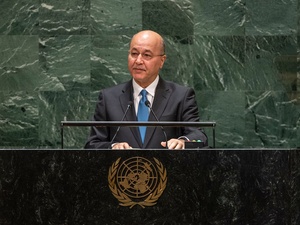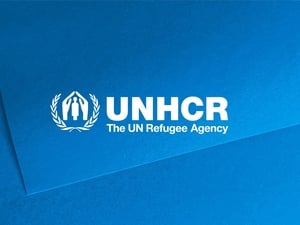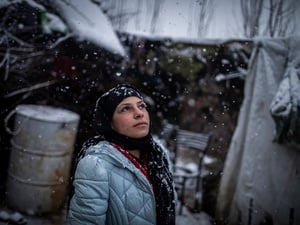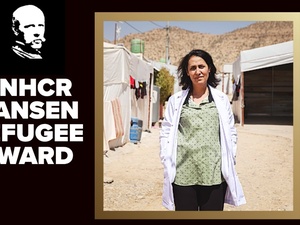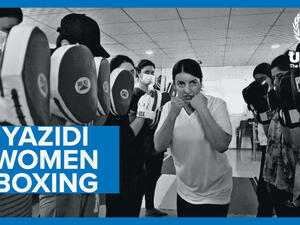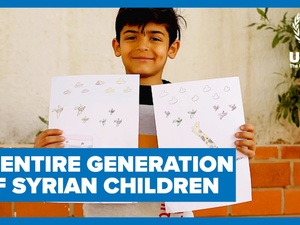Iraq region: UNHCR's preparations
Iraq region: UNHCR's preparations
We're getting many calls about the Iraq situation so here's some updated information on our continuing humanitarian preparations.
UNHCR's contingency planning is based on an initial preparedness figure for 600,000 refugees should there be conflict in Iraq. This is not a "prediction," but a working figure based on one of many possible scenarios. It allows us to plan our budgets, logistical requirements and staffing needs. The working figure is not set in stone and can be adjusted as events dictate. And we know all too well from past experience that these working figures can be substantially different than the eventual reality.
The initial contingency preparations by UNHCR for 600,000 people require $60 million. This is part of the $123 million in requirements already announced by the United Nations in New York on Feb. 13 to cover the initial joint preparedness efforts of nine U.N. humanitarian agencies and IOM.
Of the $60 million sought by UNHCR, we have received nearly $19.5 million, including $2.77 million yesterday from the United Kingdom. At the same time, Australia and Norway said they would repay $1.8 million out of a $6 million loan UNHCR took from the UN Central Emergency Relief Fund.
Drawing on contributions to date and our limited existing reserves, UNHCR has spent $25.8 million on procurement, transportation and storage of non-food relief items, and on other preparedness measures in the region. As of yesterday, we had pre-positioned emergency stocks for nearly 300,000 people in the region and we should have enough in place for 350,000 in the next fortnight. Supplies continue to arrive and are being pre-positioned around the region, including Iskenderun, Turkey, Kermanshah, Iran, and Aqaba, Jordan. We are also assembling information from a wide range of other partners in the region who have their own emergency stocks in place.
In recent weeks, we have deployed about 30 additional international staff to countries surrounding Iraq. They join the 185 national and international staff already working in our 15 offices across the region. We also have on standby seven emergency response teams - each with about 15 or 20 members - who can be deployed within 72 hours. These teams are composed of specialists in emergency work and cover a range of protection, assistance and technical needs.
So we are doing our best with the limited resources available. The High Commissioner has asked officials in each of Iraq's neighbouring states to keep their borders open in the event of conflict. We rely on this so that refugees can seek temporary protection and assistance. Iraq's neighbours would have primary responsibility for providing refugees with temporary protection and material assistance to lessen the effects of human suffering, and for security, including maintaining the civilian and humanitarian character of any refugee-hosting areas.
In the event of military intervention in Iraq, UNHCR would work in close partnership with the neighbouring states to protect and assist refugees, including through their national Red Crescent Societies in conjunction with the IFRC and ICRC. The region's Red Crescent societies have good domestic networks and operational capacity, which make them a good fit with UNHCR's international protection and advocacy responsibilities. This is why UNHCR is now working with them and other partners to assemble information on our combined emergency stocks in the region.
In the event of refugee flows, UNHCR would focus primarily on its mandated international protection and advocacy role, including monitoring in support of keeping borders open and ensuring that the rights of refugees are respected. This would entail UNHCR access to all refugee populations. UNHCR would deploy its own specialist staff to provide proper technical expertise and support for national efforts to protect and assist refugees within and along their borders. This could include any asylum seekers caught along Iraq's borders with neighbouring states.
UNHCR's work would focus on upholding basic refugee protection principles, particularly the principle of non-refoulement and access to asylum. Together with the host governments, UNHCR staff would conduct registration of refugees. UNHCR would also seek the continued protection of some 100,000 refugees already living in Iraq.
Materially - and depending on available resources - UNHCR would support governments in providing essential services, including food, basic shelter, water, sanitation facilities, health care and clothing. To the extent possible, UNHCR would supplement the material aid provided by the host governments, their national Red Crescent societies, NGOs and other humanitarian organizations.
In Jordan, UNHCR and the Hashemite Charitable Society are preparing one camp site at Ruwaished, about 60 kilometres from the Iraqi border, just east of Ruwaished town. We're signing an agreement today to provide $1 million for additional work on the site, where preparations are being made for up to 10,000 people. The site could hold up to 20,000. Water is available, and a desalination plant to enhance the water quality has been installed by the government.
At the Al Karama border crossing point, east of Ruwaished, the Jordanian government is grading a site for possible use as a transit area for refugee arrivals, and installing toilets. We have sent supplies of tents, blankets, plastic tarpaulins, kitchen sets, mattresses, stoves, lanterns, and hygienic supplies for 10,000 people to a Hashemite Charitable Society-managed warehouse in Ruwaished. From Tuesday (today), UNHCR staff will be operating at our new satellite office in Ruwaished, where we are establishing a full-time presence with two expatriates plus two national staff. Also at Ruwaished, the government of Jordan and the Jordanian Red Crescent are preparing a second site for possible third-country nationals, should any foreign workers leave Jordan.
In Syria, El Hol camp, about 100 km from the Iraqi border, has an initial capacity for 4,000 to 5,000 people. The site will soon be ready to shelter up to 10,000 once some sanitation works are completed. It could be ready to shelter up to 20,000 people in a matter of weeks.
In Iran, site preparation continues at three sites near Ahwaz, Khuzistan Province, in the south-west of the country. You may recall that the High Commissioner visited this region a few weeks ago.


